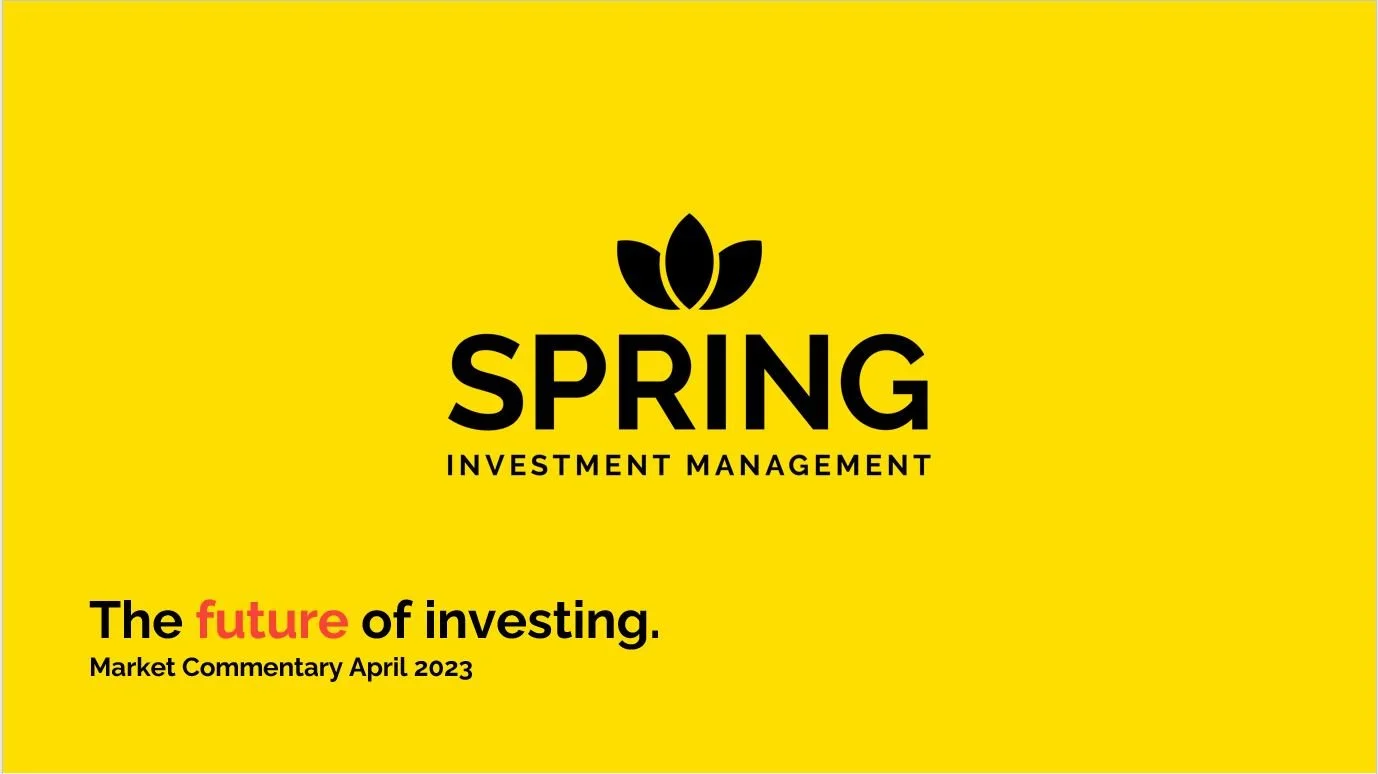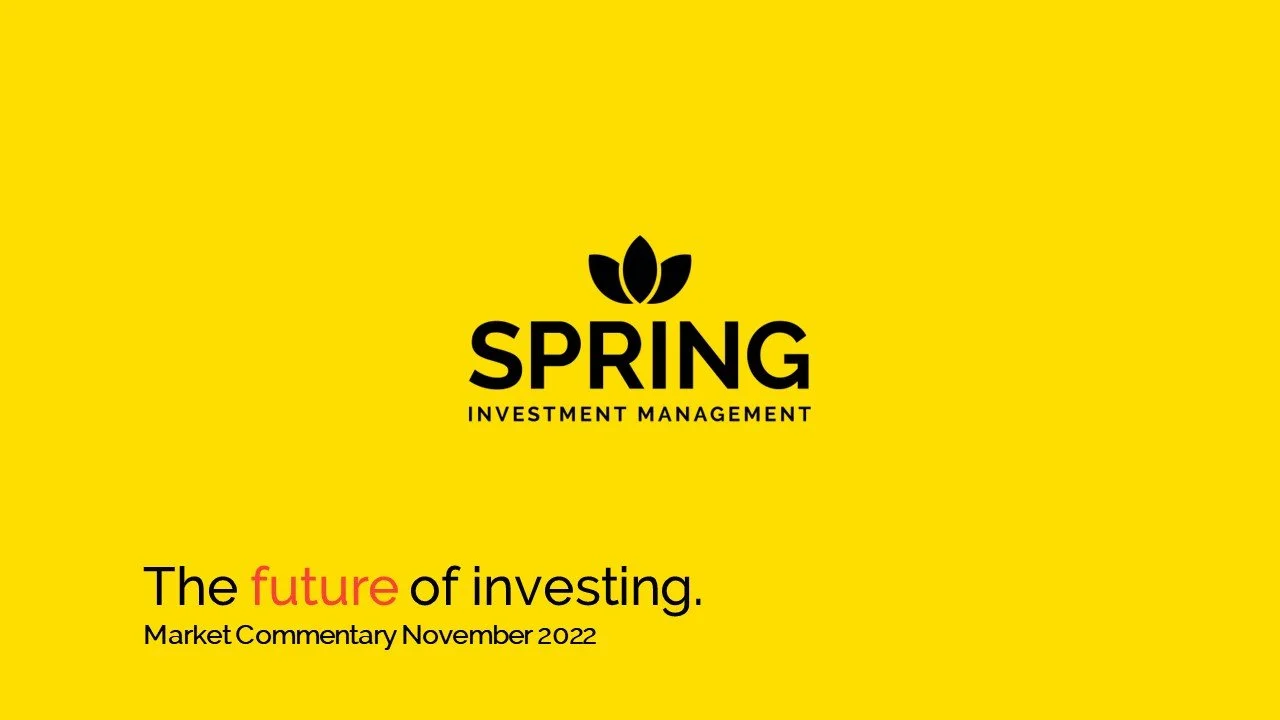April Commentary
UK MARKETS
Inflation remains stubbornly persistent
UK stocks declined through the month, with the events surrounding SVB in the US, as well as Credit Suisse in Switzerland, impacting financial services. Unsurprisingly the FTSE 350 Banks Index (-13.7%) led the decline alongside consumer-focused sectors. Manufacturing and services PMI’s have deteriorated, and growth expectations have lowered. Despite this, the Bank of England decided to increase the base rate 25 basis points, as inflation moderates but at a frustratingly slow pace. This provided a headwind to relative fixed income performance and equities, but a tailwind to sterling, most notably versus USD.
Down -3.4% (UK All Share)
March Commentary
UK MARKETS
UK equities outperform their global counterparts but remain fragile
UK stocks outperformed their global market counterparts, driven by consumer staples and materials. As monetary policy efforts begin to take hold, the economy showed the initial signs of slowing, with GDP growth declining. House prices fell at their fastest rate in a decade. The Bank of England governor Andrew Bailey delivered a more dovish statement following another 50 bp hike early in the month. Despite some positive signals, the outlook remains mixed. While inflation remains at challengingly high levels, owing to prices of soft commodities and wage growth effects, PMI’s have improved but remained in contractionary territory, and consumer confidence has lifted.
Up 1.2% (UK All Share)
February Commentary
UK MARKETS
A strong start to the year for the markets bely a challenging economic environment Led by cyclical selections within consumer discretionary, construction and real estate, the UK equity market enjoyed a strong start to the year, outperforming broader developed market equities. December’s year-on-year inflation figures fell marginally, with energy and food prices easing. However, the country is still witnessing inflation well above long-term trend levels, with robust wage growth a contributing factor. PMI’s remain in negative territory and the market is pricing negative economic growth for 2023. Retail sales are declining and aggregate demand is beginning to slow. The Bank of England will have a difficult task raising borrowing rates against this increasingly recessionary backdrop. Up 4.4% (UK All Share)
January Commentary
UK MARKETS
Despite negative returns, the UK outperformed most developed markets in December. The UK declined but comfortably outperformed developed market peers in December. This performance was due, in some part, to index composition, with the FTSE comprised of a higher number of consumer staples and commodity-focused companies, which performed better. However, growth sensitive stocks languished, as PMI’s remained in negative territory but steadied, and yields rose. Inflation remains the key cause of concern, although there are signs that it is reaching a peak. The Bank of England raised interest rates 50 basis points higher, and it’s guidance remains hawkish going into the first quarter. Down -1.6% (UK All Share)
December Commentary
UK MARKETS - Political change leads to market stability and falling government yields. The UK opted for political change, trading Liz Truss and Kwasi Kwarteng for Rishi Sunak and Jeremy Hunt as Prime Minister and Chancellor, respectively. Equities responded positively to a more orthodox fiscal approach and greater political stability, while yields declined on UK government debt. From a sector standpoint, consumer related sub-sectors, such as travel/leisure and tobacco, performed best. The Bank of England is expected to raise rates at the November meeting. However, the consensus for future hikes has softened, with the latest PMI data signalling the country is moving into contractionary territory already. Up 3.0% (UK All Share)
November Commentary
Political change leads to market stability and falling government yields.
The UK opted for political change, trading Liz Truss and Kwasi Kwarteng for Rishi Sunak and Jeremy Hunt as Prime Minister and Chancellor, respectively. Equities responded positively to a more orthodox fiscal approach and greater political stability, while yields declined on UK government debt. From a sector standpoint, consumer-related sub-sectors, such as travel/leisure and tobacco, performed best. The Bank of England is expected to raise rates at the November meeting. However, the consensus for future hikes has softened, with the latest PMI data signalling that the country is moving into contractionary territory already. Up 3.0% (UK All Share)
October Commentary
Recently announced government policy initiatives spooked the markets.
UK Chancellor Kwasi Kwarteng announced a range of policy measures which jolted risk-assets into reversal, notably a £45 billion proposal of debt-funded tax cuts at a time when inflation is running dangerously high. UK 10-year gilt yields spiked more than 120 basis points to 4.6% in just four days, which prompted the Bank of England to intervene and state it would purchase bonds ‘at what scale is necessary’ to maintain bond market stability. In response to the volatility, sterling sold-off and traded at a 37-year low versus the US dollar. Down -6.1% (UK All Share)
September Commentary
Inflation and a new PM lead to uncertain times for the UK. UK CPI rose to 10.1% to July 2022, up from 9.4% in June, with household budgets bracing for another energy price cap increase in October. The FTSE 100 fell less than US and European indexes, with Small and Mid-cap indexes down 2.03% and 5.46% respectively over the period. The UK is poised for more fiscal policy uncertainty under a new PM. Along with Europe, the energy crisis from Russia’s war in Ukraine looks set to put more pressure on UK food and energy prices. Down 2.4% (UK All Share)
August Commentary
Falling commodity prices meant the FTSE100, due to its higher exposure to commodities, lagged other developed equity markets. The Bank of England is expected to increase interest rates by 0.5% as a means to cool inflation, with UK annual inflation rising to a 40-year high of 9.4% in the year to June 2022. While the Conservative Party decides shortly on who will lead the country next, UK economic growth is expected to slow as a result of multiple factors, including nationwide strikes. Up 4.2% (UK All Share)
July Commentary
UK equity markets were down heavily, particularly in mid-caps. The Bank of England raised rates by a further 25bps to 1.25% and UK CPI YoY inflation reached 9.1%. British manufacturing (as shown by Manufacturing PMI) slowed to a two-year low, and consumer confidence is at a record low. Rising food and energy costs, coupled with rising borrowing costs such as mortgages, means the average UK household has seen negative wage growth. Down -6.2% (UK All Share)
June Commentary
Annual UK CPI came in at 9.0% due to spiralling electricity and oil and gas price rises. The FTSE100 was the best performing equity market, attributed to its heavier weighting in energy stocks. The Bank of England raised interest rates to their highest level since 2009, but still warned of a possible recession. As focus turned away from inflation to slowing growth, gilts had their best performance since March 2020. UK GDP rose by 1.3% in the first quarter 2022, vs -0.9% in Q4 21. Up 0.4% (UK All Share).
May Commentary
UK GDP grew 1.3% in the fourth quarter of 2021 while Manufacturing PMI fell to 55.2 in March from 58.0 in February. Earnings from Astra Zeneca, Reckitt Benckiser came in higher than expected, with both benefiting from their defensive non-discretionary properties. UK CPI rose to a 30-year high of 7.0% in March, with the biggest contributor being the rise in fuel prices. Retail sales fell in April as stores reported a fall in sales volumes, with consumers showing signs of changing their spending habits to counter the effects of rising inflation. Down -0.1% (UK All Share)
April Commentary
UK markets rose modestly over the month as the Chancellor’s Spring statement weighed on investor sentiments. UK CPI inflation reached a 30-year high of 6.2%, translating into a hefty fall in disposable incomes alongside rising NI contributions. Large cap stocks, as tracked by FTSE 100, outperformed small and midcaps due to its large weighting in oil & gas and mining stocks. Meanwhile, in an effort to tackle inflation, BoE raised rates for the third time by 0.25% to 0.75%. Up 0.7% (UK All Share)
March Commentary
Returns were dominated again by large-cap companies, with the FTSE 100 largely flat. Continuing falls were seen, however, in the mid and small-cap indices, which were both down by more than 3%. The All Share Index, which is dominated by the FTSE 100, sustained only a modest fall during the month, as the UK market has a high exposure to oil and resources stocks, which continued to be driven higher by events in Ukraine. The UK market continues to be the best of the major equity markets so far this year. Down -0.8% (UK All Share)
February Commentary
The BoE decided to keep rates unchanged despite market expectations. This delay in implementation was not sufficient to counteract the negative impact of the new variant, which was particularly felt in small caps and sectors such as airlines. UK CPI reached 4.2%, as the shortage of goods & services and staff continue to push prices higher…
December Commentary
The BoE decided to keep rates unchanged despite market expectations. This delay in implementation was not sufficient to counteract the negative impact of the new variant, which was particularly felt in small caps and sectors such as airlines. UK CPI reached 4.2%, as the shortage of goods & services and staff continue to push prices higher…
November Commentary
After several month of leadership by the mid-cap section of the UK market, the large-cap FTSE 100 rose strongly, to dominate UK returns. Continued rises in the price of Brent Crude boosted oil shares – a big component of the FTSE 100, whilst, elsewhere…
October Commentary
UK equity market was weak as supply chain disruptions led to chip shortages and a brewing energy crisis fanned investor concerns. Strong performances from the major oil companies were not enough to offset the weakness in the mid-caps, in particular travel stocks…
September Commentary
UK equities were led, once again, by the FTSE Mid-250 Index, despite Sterling weakness during the month. After July’s +2.5% return, driven by travel stocks, August saw the Index add a further 5%, driven primarily by bid-speculation, following a bidding war for aerospace supplier, Meggitt…
August Commentary
UK equities rose just slightly in July, but the strength of Sterling against the US Dollar and Euro meant large cap stocks with overseas earnings performed poorly, suppressing the main index. It was a volatile month, and markets sold off in the first part of the month due to the spread of the delta variant spread and the slowing growth outlook…





















